Keywords: World Day Of Peace
There are more than 200 results, only the first 200 are displayed here.
-
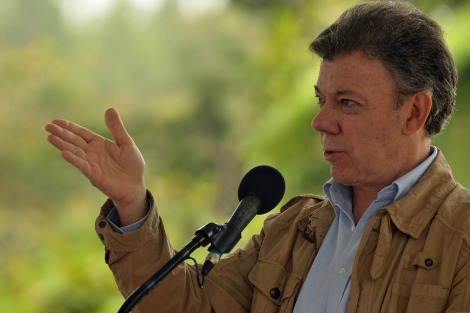
INTERNATIONAL
- Antonio Castillo
- 10 October 2016
2 Comments
Colombia has been on a massive political and emotional roller coaster. A peace accord to end the 52 years civil war was signed on 26 September, only to be rejected in a referendum on 2 October. A few days later President Juan Manuel Santos, whose referendum was rejected, received the 2016 Nobel Peace. All of this happened not in a hundred years, but in the space of a few weeks. Yet for those who know a bit about Latin American politics the defeat of Santos in the referendum was not unexpected.
READ MORE 
-
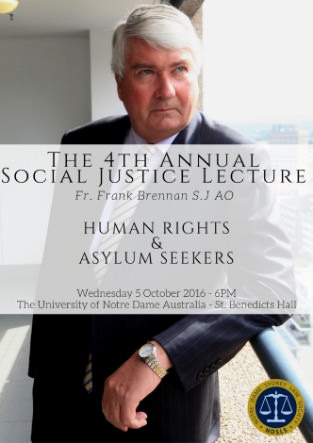
AUSTRALIA
- Frank Brennan
- 06 October 2016
8 Comments
Australia's policy is unique and unrepeatable by other nations because it requires that you be an island nation continent without asylum seekers in direct flight from the countries next door and that you have access to a couple of other neighbouring island nations which are so indigent that they will receive cash payments in exchange for warehousing asylum seekers and proven refugees, perhaps indefinitely. The policy over which Turnbull presides is not world best practice. It's a disgrace.
READ MORE
-
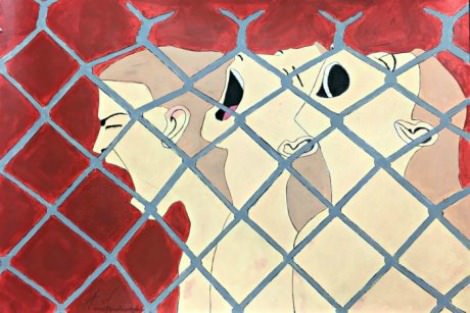
AUSTRALIA
- Lisa Stewart
- 26 September 2016
21 Comments
In the early hours of Wednesday morning, 21 September 2016, a young asylum seeker was forcibly removed from the Maribyrnong Immigration Detention Centre. With barely time to scramble his possessions together, he was taken away, placed on a plane and, along with four others, transferred to the high security detention facility on Christmas Island. Why? Because he's done something wrong? Because he's a criminal? No. Just because that's the way we now do things here.
READ MORE 
-

RELIGION
- Frank Brennan
- 23 September 2016
18 Comments
'No good will be served by a royal commission auspiced by the state telling a Church how it judges or complies with its theological doctrines and distinctive moral teachings. By all means, set universal standards of practice expected of all institutions dealing with children, but do not trespass on the holy ground of religious belief and practice.' Fr Frank Brennan SJ addresses the Freedom for Faith Conference in Melbourne, 23 September 2016.
READ MORE
-
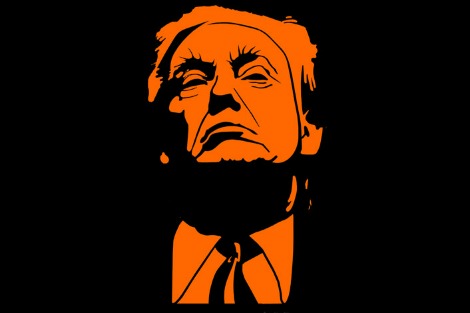
INTERNATIONAL
- Jim McDermott
- 24 August 2016
5 Comments
Maybe standing there we weren't afraid about the fight that was happening across the street, but the fraying at the edges that it represents, the insecurity that the gospel both of Trump and against Trump seems to be creating in our society. It echoes the insecurity we hear in the Brexit vote, and the treatment of both ethnic British citizens and immigrants that followed. Likewise, the resurrection of Pauline Hanson and her One Nation party. None of it sounds good and where is it all going?
READ MORE 
-
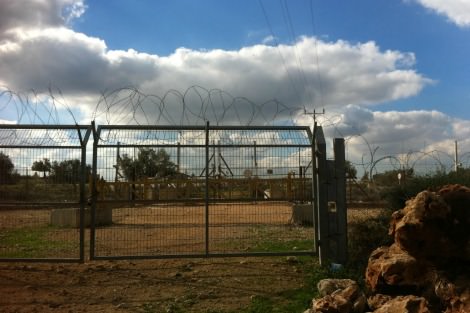
INTERNATIONAL
- Na'ama Carlin
- 28 July 2016
11 Comments
It was two years ago this month, in July 2014, that my flight touched down in Ben Gurion Airport half an hour later than scheduled. There were rumours of Hamas missiles landing in the vicinity of the airport. A few days later multiple airlines announced they were ceasing travel to Israel. What would become Israel's deadliest offensive in Gaza since the Second Intifada, 'Operation Protective Edge', was entering its second week. How did it come to this?
READ MORE 
-
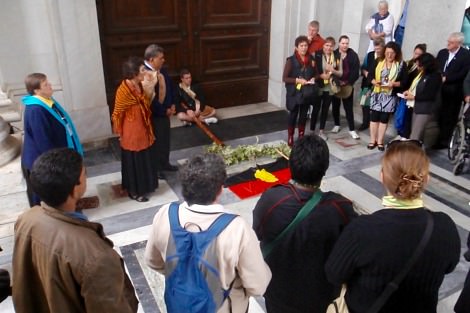
INTERNATIONAL
- Frank Brennan
- 27 July 2016
2 Comments
The violence at the pastoral frontier of the British colonies here in Australia was all pervasive. 228 years after it commenced, we are still experiencing the after-effects. When I started advocating Aboriginal rights here in Australia almost 40 years ago, the prevailing wisdom was that the missions and missionaries were all bad news. It will come as no surprise that I have always doubted that Aborigines were well rid of religion and the missionaries in all circumstances.
READ MORE
-
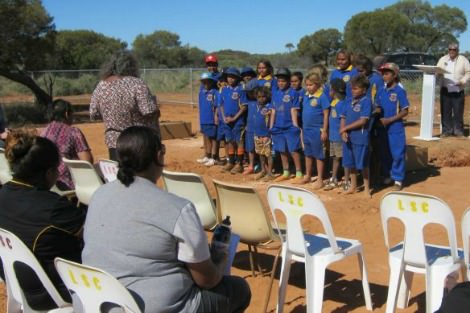
AUSTRALIA
- Kate Galloway
- 17 June 2016
3 Comments
Until the 1940s, bodies of deceased Aboriginal and Torres Strait Islander people were sent to museum, scientific, and private collections around the world. The remains of more than 1000 Aboriginal and Torres Strait Islander Australians continue to be held overseas in collections. Indigenous Australians have worked tirelessly towards repatriation, and there has been some success in recent decades. Unfortunately, the remains tend to fall into a grey area of Australian law.
READ MORE 
-
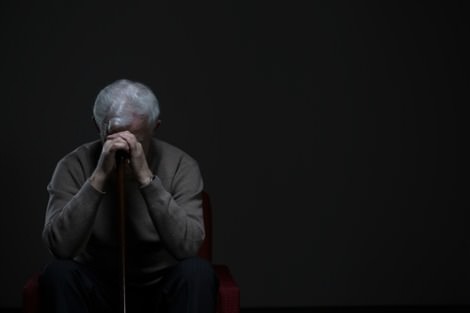
ARTS AND CULTURE
- Julie Guirgis
- 16 June 2016
13 Comments
Today I walked past the bathroom and noticed a pale yellow puddle with an odour worse than an unflushed toilet. I cringed at the stench, with the realisation that I had to wash urine off the floor ... Dad's illness sometimes causes ambiguous loss. It is unclear, has no resolution or closure. He is like someone I don't know anymore; he is gone-but-still-there. This leads to complicated grief. I can't look at him without seeing a fading picture of who he used to be, and speak of him in the past tense.
READ MORE 
-

RELIGION
- Frank Brennan
- 02 May 2016
2 Comments
READ MORE
-
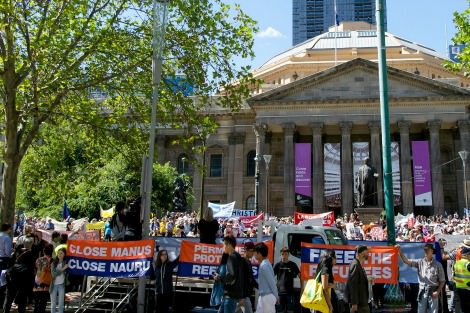
AUSTRALIA
- Andrew Hamilton
- 31 March 2016
5 Comments
The Palm Sunday Refugee Marches have come and gone; the travails of people who seek asylum continue. In a recent article that reflects her rich experience, Moira Rayner was right to say that marches are not effective in changing policy. Where they are, as in the Vietnam War marches in Australia or in Manila under Marcos, the fortress was already crumbling. Yet even when they are not effective, marches are not a waste of energy. Their value lies not in their effectiveness but in their ritual.
READ MORE 
-
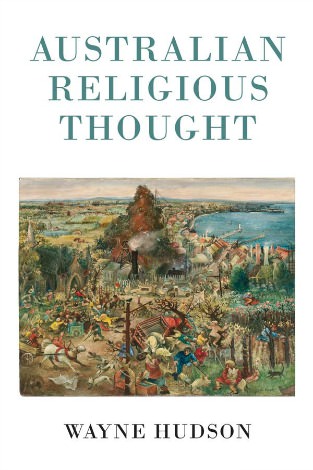
RELIGION
- Frank Brennan
- 22 March 2016
6 Comments
I offer no public judgment of Pell, and unlike many other commentators I'll await the findings of the royal commission. I have however been outspoken about his right to a fair hearing and natural justice, not because I am a priest but because I am a human rights lawyer who cares about the universal application of the rule of law. It is when a representative of institutional religion like Pell taps into the generic religious sensibility or moral consciousness that the real work of Australian religious thought is done.
READ MORE